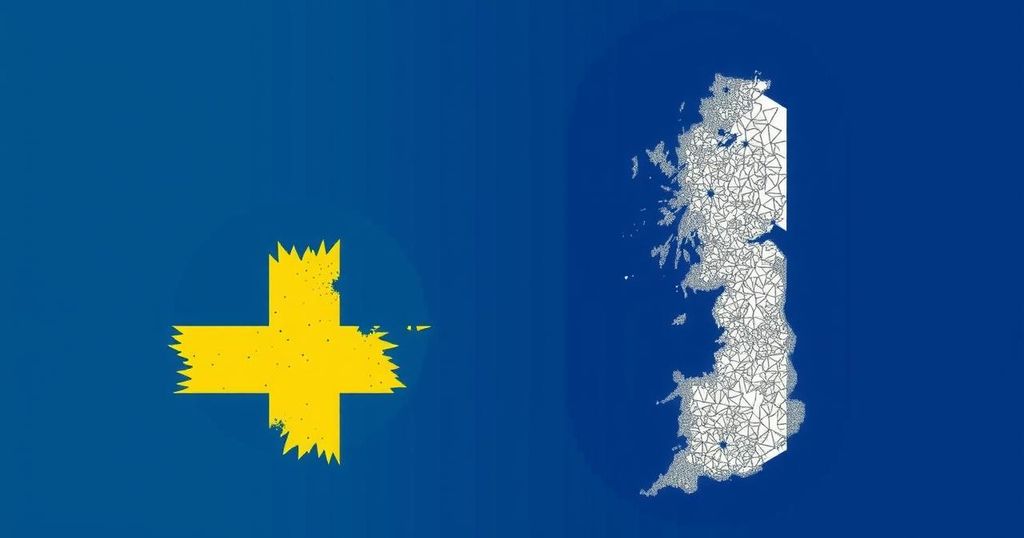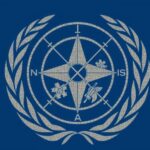Conflicts
Politics
BALTIC SEA, CARL - OSKAR BOHLIN, CRIMEA, DEFENCE, DEFENSE SPENDING, EUROPE, EUROPE/ASIA, FINLAND, GOTLAND, MIC, MIKA, MIKAEL FRISELL, MILITARY, MILITARY SUPPORT, MSB, NATO, NORDIC, NORTH AMERICA, OSKAR BOHLIN, PSYCHOLOGICAL DEFENCE AGENCY, RUSSIA, STOCKHOLM, SWEDEN, SWEDISH CIVIL CONTINGENCIES AGENCY, UKRAINE, UNITED STATES, WAR
Dante Raeburn
Sweden and Finland Reinforce Public Readiness Amid Rising Threats
Amid rising security threats, Sweden distributes pamphlets on war preparedness, while Finland launches an information website. Both countries, now aligned with NATO, emphasize citizen readiness in response to Russian aggression following the invasion of Ukraine.
On Monday, Sweden commenced the distribution of millions of pamphlets aimed at instructing citizens on how to prepare for potential warfare, while Finland launched a dedicated website to address similar preparedness concerns amidst the ongoing three-year Russian invasion of Ukraine. In a significant shift from decades of military non-alignment, both Nordic nations have now aligned themselves with the US-led NATO defense alliance, catalyzed by Russia’s aggressive actions since its 2022 invasion of Ukraine. Mikael Frisell, the director of the Swedish Civil Contingencies Agency (MSB), emphasized the gravity of the current security landscape, stating, “The security situation is serious and we all need to strengthen our resilience to face various crises and ultimately war.” Since the outset of the conflict in Ukraine, Sweden has persistently encouraged its population to prepare both mentally and logistically for the possibility of armed conflict, marking a stark departure from its previous defense policy. Following the Cold War, Sweden significantly reduced its defense budget, opting instead to engage in international peacekeeping initiatives. However, in light of the 2014 Crimean annexation, the country has reinstated limited conscription, substantially increased military funding, and reinforced its Baltic Sea island military presence on Gotland. Sweden has also enhanced bomb shelter capabilities, secured water supplies and transport systems, appointed a civil defense minister, and established a Psychological Defence Agency to counter misinformation. The newly introduced 32-page document titled “If Crisis or War Comes” provides comprehensive guidelines on readying for war, natural disasters, and cybersecurity threats. This brochure, which will reach 5.2 million households over two weeks, updates a long-standing informational resource—having been issued five times since World War II. Notably, the latest pamphlet does not specify threats from Russia, Ukraine, or any specific country by name, yet it warns that military threats are escalating and stresses the imperative of readiness for a worst-case scenario. The Civil Defense Minister, Carl-Oskar Bohlin, sparked concern earlier this year by stating, “there could be war in Sweden,” a sentiment echoed by the former army chief, Micael Byden, who urged Swedes to mentally brace themselves for potential warfare. Sweden has not engaged in warfare for over two centuries, and the new pamphlet underscores the need for citizens to stockpile non-perishable foods, maintain cash reserves, and cultivate gardens for sustenance. In parallel, Finland has implemented its preparedness strategies more robustly, launching an information website on crisis readiness. The nation shares a lengthy border with Russia and has maintained heightened preparedness levels. In response to geopolitical tensions, Finland has also initiated plans to erect a 200-kilometer security fence, anticipated for completion by 2026, to enhance border security against potential incursions and hybrid attacks.
The geopolitical landscape in Europe has shifted dramatically following Russia’s ongoing invasion of Ukraine, prompting countries such as Sweden and Finland to reassess their defense strategies and public preparedness. For decades, both nations pursued policies of military non-alignment, focusing on international peacekeeping. However, the alarming developments catalyzed by Russian aggression have led them to join NATO and adopt a proactive approach towards national defense, underscoring their need to educate citizens on emergency preparedness.
In summary, Sweden and Finland have taken vital steps to bolster national defense amid rising security threats from Russia. Sweden’s distribution of preparedness pamphlets and Finland’s crisis response website highlight the urgency of public readiness for potential military conflicts. By re-engaging with military preparedness, these countries aim to ensure their citizens are informed and equipped to handle various emergencies, reflecting a significant policy shift in light of current geopolitical realities.
Original Source: thedefensepost.com








Post Comment